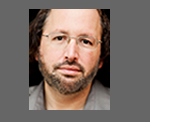AN INTERVIEW WITH ALLISON ANDERS
GETTING STARTED
What are some of the movies and filmmakers that made you fall in love with the movies?
Well, I guess when I first decided that I wanted to make movies, the biggest inspiration was Wim Wenders. However, there are movies from every single period that inspired me in all ways, not just in my pursuit of movies, but in my life as well.
What did you do to pursue filmmaking?
I was in Junior College at the time, and I went to my counselor and said, “I want to transfer to UCLA film school.” She gave me a huge list and said, “Take all these classes and come back to see me.” It was, like, two years of classes. And she said, “Oh, only 9 percent of the people who apply get in.”
How did film school affect the kind of filmmaker you are now?
Well, UCLA had a reputation at the time for really preparing film students to become film makers. They did not prepare them to work in the industry—they do more of that now. But the deal was that you do as much of the work yourself as you can... you write your own script, edit your own piece, but you do all of that by yourself.
Did you end up doing a feature in school?
I did Border Radio while we were still enrolled at UCLA. It was one of those things that people knew we were doing it but they pretended not to know because we weren't supposed to be doing it. So it was a sort of passive encouragement... we had to scam equipment, but we did it so we set a precedent that everybody followed.
How have you approached working in Hollywood as a career?
I think I've been lucky... it's kind of felt like sort of a fairy tale, and a bit of a prank. Sometimes I can't quite believe that I get to do this for a living. I haven't felt that I had to make any concessions... so I can still have a lot of fun. Which isn't to say that I don't have a lot of pain and anguish, but I think it's worth it.
WRITING/DIRECTING
Do you consider your self a director first or a writer?
I think there's a point at which I consider myself a director first. But I think that my need to write is pretty intense, and I might not always be able to direct, but I will always be able to write. And there is a kind of gratification I get from writing that I don't get from just shooting.
How do you approach beginning a script?
Well one thing that I do each time when I start writing is I make a very long audio tape of music, that I consider the world of the movie... Some ideas sit a long time with me like the film I'm working on now, Grace of My Heart. I had long loved the music from the early Brill Building period in New York City. And they had a bunch of teenage song writers there, and I was particularly excited by the idea that these kids were working all together in the Brill building at the same time... and I thought that must have been quite a time.
The story that came out was about a female songwriter?
That's right, yes.
How is Grace of my Heart going to play off what you've done in the past?
Grace of My Heart is a sort of a musical and dramatic film. In Grace of My Heart I worked out a lot of grief, but also tend to make prophecies about things that happen to me and my work.
Has that process occurred in other films you've written?
Yeah, Gas Food Lodging—there was a lot of personal stuff... There was a lot of unrequited love stuff that I used in the film. My biggest fear was that I was going to end up with some guy like Hamlet Humphrey, a really dopey guy that sells satellite dishes. And in Ma Vida Loca some things did come to pass. I always thought that one of the gang kids would end up dying before the film was released, but I always thought it would be one of the boys. Shortly after the film one of the girls died, not of gang violence but of a drug overdose.
You've said that filmmaking is a responsibility. What did you mean?
I think that, for me, I feel responsible to put things on the screen that maybe don't get on there very often, you know? I try and show women in a variety of different ways, for example.
When you approach a project do you have an agenda? Or does it just come out that way?
It does just tend to come out that way. I'm extremely opinionated about how women are represented on the screen...
Are you a feminist filmmaker?
Yeah ... I don't really mind the label, either. I was a very proud feminist at seventeen. But when I became a feminist it was a consciousness raising movement. It was against patriarchal values. It wasn't let's go out and be like guys—so it was very bizarre to me when that came up in the 80s, like La Femme Nikita. That's not what we were supposed to be doing.
Would you write your screenplays differently for someone else to direct?
Yes, I would. If I wasn't going to direct, I probably wouldn't give things that were very personal to me. Sometimes you get into problems with this. In Grace of My Heart it occurred to me that I was putting all these personal things into the script, but the studio owned it, and it was disturbing to think that Jonathan Kaplan could be directing the script. And I thought, “This is really weird.”
MELODRAMA
I've heard you label your genre Melodrama. What is melodrama?
Well, for me, melodrama is not to be confused with the adjective melodramatic. But melodrama is a genre of film which... basically tells the story from the inside out. It charts the interior journey of a character, and their actions happen as a result of what's going on inside of them. In most films you have the action going the opposite way. The action happens and affects the character. In melodrama, the action happens from the inside out.
You've said people desperately need to see melodramas. Why?
Because it's the thing that speaks to that part of their lives. I think that's the reason for pop psychology and people on spiritual quests. I think it's all very heightened by people's need to address their spiritual yearning.
Both GFL and Ma Vida Loca begin with a montage and voice-over to set up the story. Why?
Once again, it's a melodrama device, where you go outside to go inside. And the voice-over helps you to get inside, because you're starting in someone's head in a way. And you've seen the environment and you're outside and you're going inside.
If you could triple your budgets, would your films be different?
No.... Would I have bigger stars? I don't even think that would be the case. I think that someone like Katherine Bigelow, her vision is very big. My vision with melodrama and family films is much more easily contained. I would like to have a bigger budget...(laughing) I think I could think of things to do with the money. I would never know how to do a high concept movie. I wish I did because I'd be a lot richer.
AUTOBIOGRAPHICAL
Your friend Bill (William Ewart), one of the producers of GFL, says you were in every one of the characters in that film.
I think that all of those characters really were me, which confused my mother terribly, because she thought they were all her.
How do you balance the autobiographical with the dramatic?
It's a really odd thing. In each of my films, even Four Rooms, there's very personal stuff there. But even in my set dressing I use things from the characters and from my life and the actors life... Most people's lives are a bit meandering. But even if you have a meandering narrative—which I do in my films and my life—you find that to create meaning you have to take them into a totally different context. And you often have to take them out of order El Duran (the prisoner/poet from Ma Vida Loca) was basically a way that I worked out an unrequited love affair. So I came up with a solution when I was broken hearted that I would shoot him... in the script. (She laughs) What's more interesting than the fact that it was me working out my stuff was that he was a character who was truly a melodrama character who had two sides. In his case he's writing letters from a prison, he's sending poetry and he's Mr. Soulful... and that's not untrue, he really is those things. But when he gets out of prison, he has this other persona as a playboy and gangster. And his tragedy is not being able to bring those two together to really be who is he at the core.
LAST QUESTION
Do you have any suggestions/advice for first time screenwriters struggling to get that first script finished?
You really just have to... as silly as it sounds, you really just have to finish. You have to plow ahead. Novelist and screenwriter Allison Gold taught me this. I said I keep getting to page 60 and I can't write any more. And she said “What happens?” And I said, “I think that everything I wrote before that is shit.” And she said, “What if it is? You just keep writing through it.” Often you'll find that it really wasn't bad. As dumb as it sounds, you just keep writing through it.








